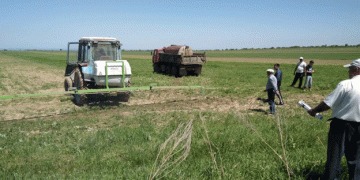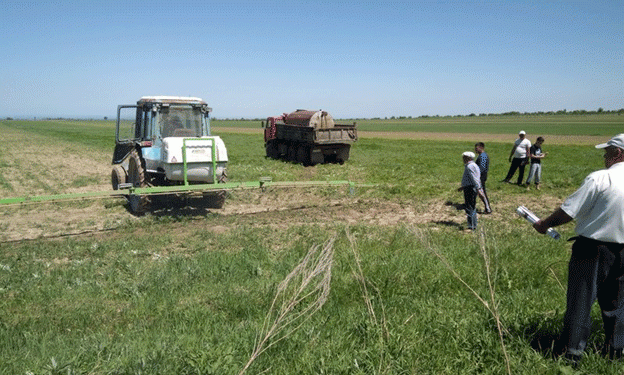Despite favorable weather conditions promising a bumper beet crop this year, Kyrgyz sugar farmers face a significant threat from cheaper sugar imports. With local production covering only 65% of domestic demand, the influx of low-cost sugar from Russia and Kazakhstan could lead to bankruptcy for many local farms.
Kyrgyzstan is on the verge of a promising sugar beet harvest, with favorable weather conditions creating an ideal environment for a bumper crop. However, the local sugar industry is facing a severe threat from cheap imports. With only 65% of the country’s sugar needs met by local production, imported sugar from Russia and Kazakhstan is flooding the market, driving down prices and threatening the survival of Kyrgyz beet farms.
The Harvest and Local Production Challenges
The sugar beet harvest in Kyrgyzstan typically begins in October-November. Despite the promising crop this year, local farmers cannot fully supply processing plants, necessitating sugar imports to meet domestic needs. According to the Ministry of Agriculture, these imports, mainly from Russia and Kazakhstan, are putting local farmers in a precarious position.
Mirgasym Allakhveranov, a farmer from the Chui region, stated that while the crops are doing well this year, the influx of cheap imported sugar is making beet cultivation unprofitable. “If we talk about crops, they are not bad now. Only the lazy will be able to spoil the harvest. The weather conditions are excellent this year: there is moisture, not much heat, but enough, and beet is doing well. I think the harvest will be above average this year,” he told The Times of Central Asia.
Economic Impact and Government Intervention
Currently, about 3,000 beet farms operate in Kyrgyzstan, but their numbers are dwindling as market conditions worsen. In response, the government has provided 7 billion som ($78.6 million) in soft loans to support farmers. However, this may not be enough to counter the adverse effects of cheap imports.
Since the beginning of 2024, Kyrgyz authorities have imported 10,800 tons of sugar worth $6.4 million. The continued dependence on imports is jeopardizing the country’s food security and affecting local prices. A draft law proposing a ban on sugar exports until early fall has been submitted for public discussion, aiming to stabilize the market and support local production.
Historical Context and Future Outlook
In the 1960s, Kyrgyz beet was considered the best in Central Asia, thanks to scientific advancements in crop yield optimization. However, modern farmers now rely on seeds imported from Europe, which are not always suited to the local climate. This change has contributed to lower yields and an increased reliance on imports.
To achieve self-sufficiency in sugar production, processing plant owners suggest that approximately 20,000 hectares of beets need to be planted each year. This year, only 15,000 hectares were planted, even with government subsidies.
The Kyrgyz sugar industry is at a crossroads. While favorable weather conditions promise a good harvest, the influx of cheap imported sugar from Russia and Kazakhstan poses a significant threat to local farmers. To ensure the sustainability of the local sugar industry, a multi-faceted approach is needed, including improved local seed adaptation, increased planting areas, and effective government policies to manage imports and support local farmers.































